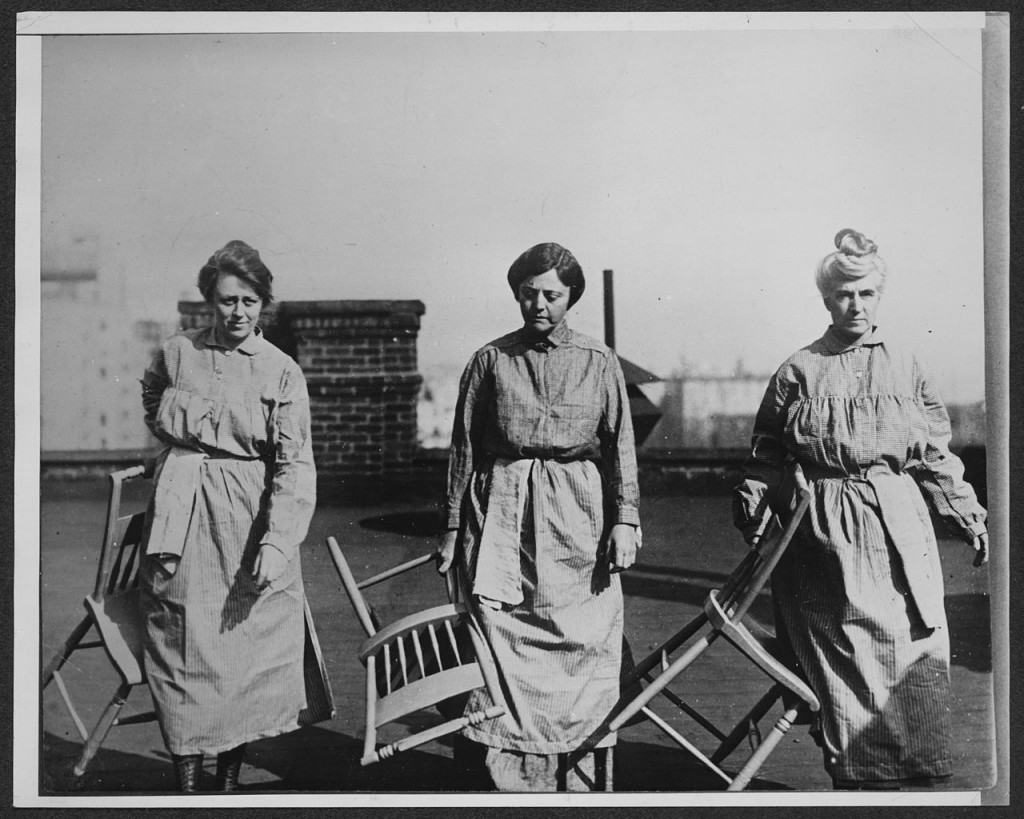You know how it goes. You’re sitting in a coffee-shop, eavesdropping – or you’re listening to some Christian dating expert – or you’re scrolling through your Facebook feed, and there it is:
“Feminists all (fill in the blank with something really derogatory).”
And the audience laughs.
You do not, though – not because you lack a sense of humor, but because there’s nothing especially amusing about rank ignorance. You wonder: did they bother to do any research before making these assertions? Do they know you’re a feminist? Do they care that they’ve insulted you and your friends? Maybe they couldn’t tell you are a feminist, if you don’t happen to fit their image of what a feminist looks like. You might be a young mother waiting for your toddler to finish his doughnut, or you may be a college student with a typical “feminine” look. You might be a farm woman in coveralls with mud on your boots. You might be a computer geek, a musician, a chef. You might be a religious sister.
If you have short hair dyed blue, they might guess that you’re a feminist, and tag onto that all sorts of other descriptors that have nothing to do with you.
If you speak up to correct their misapprehension, will they listen, or will they just ignore you and go on repeating the same things?
I crowd-sourced from my feminist friends, and came up with a list of things we wish you knew about us.
- First of all: there are many feminisms. What you learn about what feminist, or one feminist tradition, does not necessarily extend to cover all feminists or feminisms. So proceed with caution.
- We don’t hate men. Hating men is nowhere written into any existing feminist tradition or text. Some of us like men quite a lot, to be honest – even if we loathe the patriarchy. Now, it is true that a particular feminist might be angry at men. If she is, it’s quite possibly because she has been a victim of abuse or rape. Her anger is personal – maybe even a self-defense mechanism – not a feminist statement. And we hope that instead of just saying “hey, I’m not like that!” – you’ll prove that you’re not like that, by listening to her when she speaks up about injustice.
- We don’t particularly want to be like men – or at any rate, wanting to be like men is nowhere central to a feminist creed. Sure, some of us prefer a more androgynous or masculine aesthetic. I personally avoid wearing dresses and skirts, on the principle that you never know when you’ll have to climb out a window or jump on a horse and gallop away, but this is not due to any submerged penis-envy. Yes, we may do logic and manage money; we may fix cars or cut down trees or go hunting. None of these make us “like men.” They just make us women who are good at logic, or cutting down trees. In fact, many feminists specifically prefer to emphasize NOT being like men, with the idea that acting like men is harmful to the culture.
- We don’t love abortion. There are pro-life feminists. There are pro-life feminists. There are pro-life feminists (repetition, because I want it to sink in). Nearly all my feminist friends are prolife, as I am. But it’s also the case that pro-choice feminists do not think abortion is awesome, either. Even “shout your abortion” (a slogan that makes many of us deeply uncomfortable) is not intended to say “abortion is so awesome” – but, rather, to remove the stigma from talking about it.
- We don’t think women are superior to men. This is in fact, the opposite of the usual feminist view. There are certainly feminisms that argue for the superiority of a female worldview, but feminism tends to emphasize equality.
- You can be a feminist and be Christian. And being a Christian feminist, or a feminist theologian, doesn’t mean you’re some kind of dangerous heretic.
- We don’t hate motherhood and marriage. Most of us are interested in the flourishing of families, in healthy marriages, and the well-being of children. Some feminists love being domestic, even. And while others may be happier not getting married and starting a family, this is simply because they are being true to themselves. And while yes, there are branches of feminism that are critical of the institution of marriage, when you look at the history of the institution of marriage, you can hardly blame them.
- We’re not necessarily aligned with any political ideology or group. Feminists come in many political, as well as religious, flavors. And being feminist doesn’t, or shouldn’t mean neglecting other political or social issues. That’s what being “intersectional” means.
- Just because we’re angry about injustice, this doesn’t mean we aren’t happy and grateful for the good things in our lives.
- Yes, men can be feminists. Okay, this one is up for some dispute, for various reasons: some feminists prefer to think of sympathetic men as allies. Some allies are wary about identifying as feminists, NOT because it will make them “less masculine” (massive eye-roll) – but because they have seen too many men claim to be feminist in order to try to take advantage. This strikes me as a pretty feminist perspective, actually, and I appreciate it. Personally, though, I believe men can be feminists – and should be feminists. This is not only because male support is valuable, but because entering into discourse with male feminists can add a lot to our understanding about how humans best relate and understand one another, what societal structures are harmful, and how best we can dismantle them in a way that is wholesome, not destructive.
Postscript: we really, really wish you would take a little time to educate yourself on the history of feminism, and on different feminist traditions, before making any magisterial statements about them – or us.
image credit: https://en.wikipedia.org/wiki/Doris_Stevens#/media/File:Doris_Stevens,_Mrs._J.A.H._Hopkins_Mrs._John_Winters_Brannan_160059v.jpg













